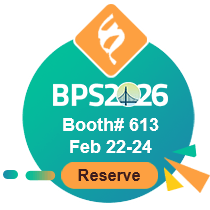| Species : |
Human |
| Source : |
Mammalian Cells |
| Tag : |
Flag |
| Description : |
The protein encoded by this gene is a member of the transmembrane 4 superfamily, also known as the tetraspanin family. Most of these members are cell-surface proteins that are characterized by the presence of four hydrophobic domains. The proteins mediate signal transduction events that play a role in the regulation of cell development, activation, growth and motility. The encoded protein is a cell surface glycoprotein that is known to complex with integrins. It may function as a blood platelet activation marker. Deficiency of this protein is associated with Hermansky-Pudlak syndrome. Also this gene has been associated with tumor progression. Alternative splicing results in multiple transcript variants encoding different protein isoforms. |
| Form : |
25 mM Tris HCl, pH 7.3, 100 mM glycine, 10% glycerol. |
| Molecular Mass : |
25.5 kDa |
| AA Sequence : |
MAVEGGMKCVKFLLYVLLLAFCACAVGLIAVGVGAQLVLSQTIIQGATPGSLLPVVIIAVGVFLFLVAFV GCCGACKENYCLMITFAIFLSLIMLVEVAAAIAGYVFRDKVMSEFNNNFRQQMENYPKNNHTASILDRMQ ADFKCCGAANYTDWEKIPSMSKNRVPDSCCINVTVGCGINFNEKAIHKEGCVEKIGGWLRKNVLVVAAAA
LGIAFVEVLGIVFACCLVKSIRSGYEVMTRTRPLEQKLISEEDLAANDILDYKDDDDKV |
| Purity : |
> 80% as determined by SDS-PAGE and Coomassie blue staining. |
| Stability : |
Stable for 12 months from the date of receipt of the product under proper storage and handling conditions. Avoid repeated freeze-thaw cycles. |
| Storage : |
Store at -80 centigrade. |
| Concentration : |
>50 ug/mL as determined by microplate BCA method. |
| Preparation : |
Recombinant protein was captured through anti-DDK affinity column followed by conventional chromatography steps. |
| Protein Families : |
Druggable Genome, Transmembrane |
| Protein Pathways : |
Lysosome |
| Full Length : |
Full L. |



